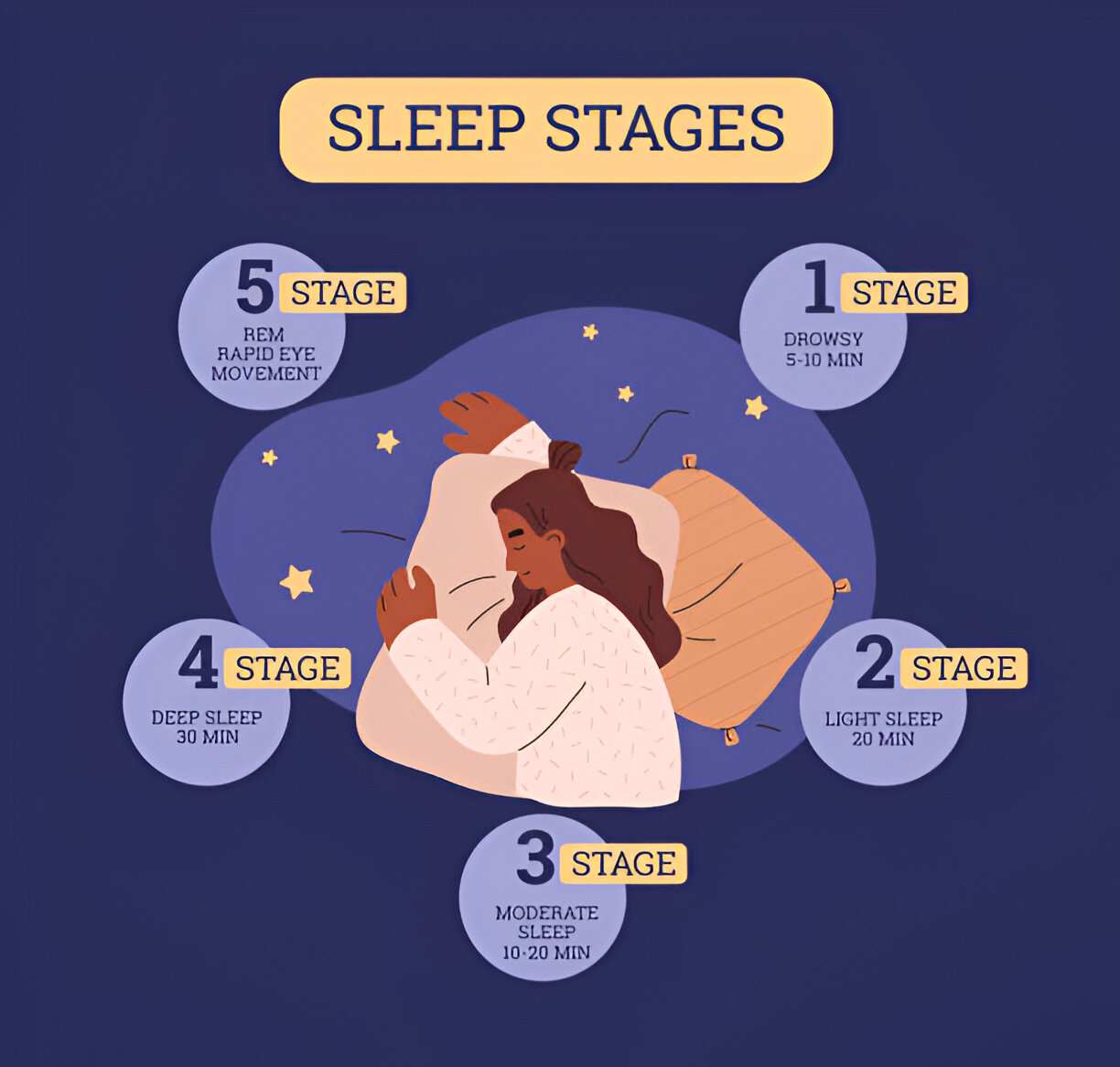One-third of our lives are spent sound asleep. The 7-9 hours we spend catching Z’s every night help our bodies heal, improve the immune system, and give a healthy break to our hearts. Beyond that, sleep specialists are looking to learn more about what occurs when we fall asleep.
Why do you dream in color some nights and black and white in others? And why does the only hour of daytime savings so appreciably affect your sleep schedule? Let's learn about uncommon and amusing statistics about sleep, goals, and more.
1. The longest someone has gone without sleep is 11 days, 25 mins.
A high school student, Randy, went 264.4 hours straight without sleep in 1964, and for this, he received first place in the 10th Annual Great San Diego Science Fair. When asked if he’d do it again, he said, “No.”
Others claim to have beaten Randy’s record; however, their attempts were not carefully supervised like Randy’s, so there’s no way to assess whether they’re valid. Remember pulling all-nighters for school projects or for meeting office deadlines?
Hopefully not anymore. Make those a thing of the past if you still stay up from time to time completing projects; sleep deprivation can negatively impact your body and mind.
2. The ‘Strangers’ You Meet May Not Be So Strange
Though scientists haven’t proved this yet, some researchers believe that the strangers you meet in your dreams may be people you’ve met before. The theory: Even though you have no recollection of ever laying eyes on them, they could be random people you’ve passed on the street or seen on TV—not brand-new creations.
Remember that random cashier who bagged your groceries seven years ago? Of course, you don’t—but your subconscious likely stored away his image, and it bubbled up again.

3. Think you don’t dream?
Humans generally have among 4 to 6 dreams a night. . Many sleep scientists trust dreams help your mind process the events of the day, so goals are enormously crucial! If you believe you studied you don’t dream each night, it possibly just means you’ve forgotten your goals by the point you are awake.
4. Only Some People Dream In Black and White
British research shows that seniors—but not young people—dream in black and white about 25 percent of the time. Scientists say the older generation’s exposure to black-and-white TV may explain why they sometimes struggle to dream in Technicolor.
5. Sleep struggles is Not Just Limited to Humans
There’s evidence that pets, and even insects, can experience insomnia. They tend to gain more fat, learn more slowly, and lose their balance—all similar to the effects humans can suffer when they’re sleep-deprived.
6. Bright Screens Can Affect your Circadian Rhythm
The day's natural light and dark cycle enables your body to understand when it’s time to be awake and alert and when it’s time to wind down and get some sleep. If your eyes continuously stuck to shiny lighting—think phones, TV monitors, video games, and other things—how would your body realize it’s time to relax? It can’t. Putting telephones and other shiny screens away at least half an hour before bed is an excellent habit for exercise and maintaining healthful sleep hygiene.
7. You Can’t ‘Catch Up’ on Sleep
Do you think you may sleep 10 hours a night to catch up for some nights of less than the advocated 7-9 hours of sleep? Think twice. A Harvard case study showed that sleeping longer one day to compensate for all sleep lost in the past affected reasoning and focus in humans. Only practice good sleep hygiene as best you can to show up as your best every day.

8. Try Napping, It’s Great!
Only some have left naptime in the back of the kindergarten classroom. According to the Pew Research Center, one-third of adults in the United States nap. A quick nap, 20-30 minutes, is usually recommended for short-term alertness without feeling too groggy to get on with your day.
9. Sleep After Lunch is So Real
Have you ever experienced that you could take a short snooze in the middle of the day after filling up on lunch? Think of it as a post-lunch nap. Our bodies enjoy a nap around 2:00 P.M. and 2:00 A.M. Unless you’re capable of sleeping in to get a whole night’s sleep of seven to nine hours, don’t wait until 2:00 A.M. To allow your body to let you know it’s exhausted. That’s why proper sleep hygiene is essential to help you get a good night’s relaxation.
10. Far too Many Terms for Sleep
Somniphobia is the fear of falling asleep. Oneirophobia is the fear of nightmares or dreams. Clinomania is the irresistible urge to stay cozy in bed all day, while Dysania is the word for that feeling when you’ve just woken up and don’t want to get out of bed.





















